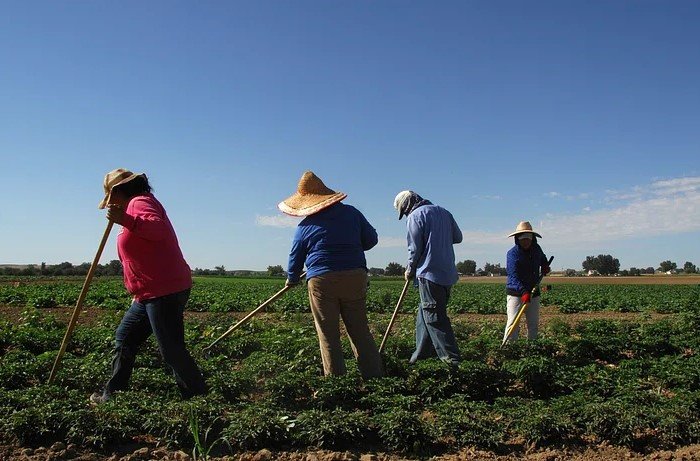If President-elect Donald Trump moves forward with his promise to deport millions of undocumented immigrants, it could deliver a heavy blow to states dependent on agriculture. Immigrants make up about two-thirds of the nation’s crop farmworkers, according to the U.S. Department of Labor, and nearly 40% of them lack legal work authorization. The sweeping changes could exacerbate labor shortages in farming and food-related industries, with ripple effects on local economies and food supplies.
Farming at Risk of a Workforce Crisis
Agriculture heavily relies on immigrant labor, particularly in crop production, meatpacking, dairy, and livestock industries. Farmers across the U.S. are already grappling with labor shortages, a challenge that Trump’s proposed immigration policies could significantly worsen.
Bruce Lampman, owner of a family-run dairy farm in Idaho, employs a small team of immigrant workers to care for his 350 cows, producing over 26,000 pounds of milk daily. Lampman voiced concerns about the potential fallout, stating, “My business and every agriculture business in the U.S. will be crippled if they get rid of everybody who does the work.”
For many agricultural employers, these workers are indispensable, performing labor-intensive tasks that few U.S.-born workers are willing to take on.

H-2A Program Falls Short for Year-Round Needs
To cope with workforce gaps, many farmers turn to the federal H-2A visa program, which allows foreign workers to fill seasonal agricultural jobs. The number of H-2A positions has skyrocketed, rising from 48,000 in 2005 to over 378,000 in 2023. Despite this, the program has its limitations:
- Seasonal Work Only: H-2A visas cater to temporary needs, leaving year-round agricultural operations—like dairy and poultry farms—unable to benefit.
- Costly Requirements: Employers must pay visa workers a state-specific minimum wage and provide transportation and housing at no cost, making it challenging for smaller farms to participate.
With these constraints, the H-2A program remains an incomplete solution for addressing labor shortages in critical agricultural sectors.
The Threat to Temporary Protected Status
Beyond undocumented workers, many farms employ immigrants under Temporary Protected Status (TPS), a program designed for nationals from countries facing unsafe conditions like war or natural disasters. Over 1.2 million people are either under TPS or eligible for it, with many working in agriculture.
Trump’s administration has suggested ending TPS, which would leave farms struggling to fill vital roles. Immigrants from countries like El Salvador, Haiti, and Honduras, many of whom have lived and worked in the U.S. for decades, could face deportation if the program ends.
Advocates Push for Reform
Immigration advocates and agricultural trade groups argue for changes that balance economic needs with policy reform. They propose:
- Pathways to Permanent Legal Status: Allowing H-2A workers to transition to permanent status.
- Expanding H-2A Coverage: Including year-round agricultural jobs under the visa program.
Anita Alves Pena, an economist at Colorado State University, warned that without such measures, Trump’s policies could destabilize entire agricultural supply chains. “Farmers are already talking about labor shortages,” she said. “A policy like this, if not coupled with something else, would exacerbate that.”
Economic Ripple Effects
The agricultural sector contributes billions to state economies, supporting not only farmers but also local businesses, transportation, and food processing industries. A workforce disruption could lead to higher food prices, reduced output, and economic strain for farming-dependent communities.
For states where agriculture plays a pivotal role, Trump’s immigration overhaul poses significant risks. Policymakers and industry leaders now face mounting pressure to find solutions before the impacts become irreversible.

Comments